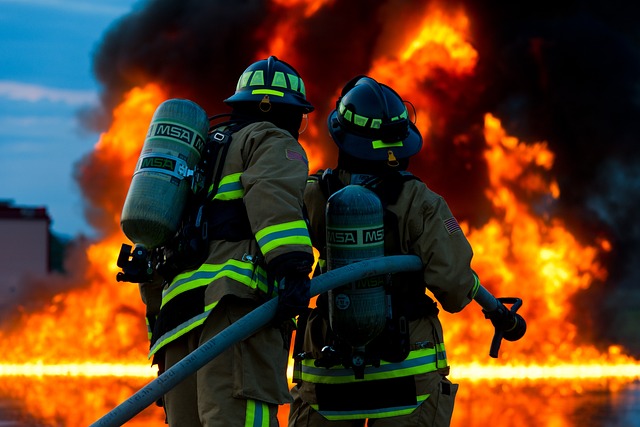Share This Article:

Federal Focus
Washington, DC (WorkersCompensation.com) -- For federal employees who work in fire protection, there are a few rules that apply to them and only them.
But just who exactly are those employees? The definition, as the relevant federal statutes and regulations present it, is available to Simply Research subscribers, but here are a few important highlights.
Definition
"Employee in fire protection activities" means an employee employed as a firefighter (including a wildland firefighter), paramedic, emergency medical technician, rescue worker, ambulance personnel, or hazardous material worker who:
+ Is trained in fire suppression.
+ Has the legal authority and responsibility to engage in fire suppression.
+ Is engaged in the prevention, control, or extinguishment of fires or response to emergency situations in which life, property, or the environment is at risk, including the prevention, control, suppression, or management of wildland fires.
When is an Illness or Disease Proximately Caused by Employment in Fire Protection Activities?
For a claim of disability or death of an employee who has been employed for not less than 5 years in aggregate as an employee in fire protection activities, an illness or disease shall be deemed to be proximately caused by the employment of that employee, if the employee is diagnosed with that illness or disease not later than 10 years after the last active date of employment as an employee in fire protection activities.
What Counts?
There is established under federal law the following list of illnesses and diseases:
(A) Bladder cancer.
(B) Brain cancer.
(C) Chronic obstructive pulmonary disease.
(D) Colorectal cancer.
(E) Esophageal cancer.
(F) Kidney cancer.
(G) Leukemias.
(H) Lung cancer.
(I) Mesothelioma.
(J) Multiple myeloma.
(K) Non-Hodgkin lymphoma.
(L) Prostate cancer.
(M) Skin cancer (melanoma).
(N) A sudden cardiac event or stroke suffered while, or not later than 24 hours after, engaging in fire suppression activities.
(O) Testicular cancer.
(P) Thyroid cancer.
Adding to the List
The U.S. Department of Labor, in consultation with the Director of the National Institute for Occupational Safety and Health and any advisory committee determined appropriate by the Secretary, periodically review the list and if DOL determines that the weight of the best available scientific evidence warrants adding an illness or disease to the list make such an addition through a rule that clearly identifies that scientific evidence.
DOL will add an illness or disease to the list based on the weight of the best available scientific evidence that there is a significant risk to employees in fire protection activities of developing that illness or disease.
The Expertise
In determining "significant risk," DOL may accept as authoritative, and may rely upon, recommendations, risk assessments, and scientific studies (including analyses of National Firefighter Registry data pertaining to Federal firefighters) by the National Institute for Occupational Safety and Health, the National Toxicology Program, the National Academies of Sciences, Engineering, and Medicine, and the International Agency for Research on Cancer.
AI california case management case management focus claims compensability compliance courts covid do you know the rule emotions exclusive remedy florida FMLA fraud glossary check Healthcare health care hr homeroom insurance insurers iowa leadership medical NCCI new jersey new york ohio osha pennsylvania roadmap Safety state info technology texas violence WDYT what do you think women's history women's history month workcompcollege workers' comp 101 workers' recovery Workplace Safety Workplace Violence
Read Also
- Apr 24, 2025
- Frank Ferreri
- Apr 24, 2025
- Liz Carey
About The Author
About The Author
-
Frank Ferreri
Frank Ferreri, M.A., J.D. covers workers' compensation legal issues. He has published books, articles, and other material on multiple areas of employment, insurance, and disability law. Frank received his master's degree from the University of South Florida and juris doctor from the University of Florida Levin College of Law. Frank encourages everyone to consider helping out the Kind Souls Foundation and Kids' Chance of America.
More by This Author
Read More
- Apr 24, 2025
- Frank Ferreri
- Apr 24, 2025
- Liz Carey
- Apr 24, 2025
- Claire Muselman
- Apr 24, 2025
- Chris Parker
- Apr 24, 2025
- Anne Llewellyn
- Apr 23, 2025
- Claire Muselman




